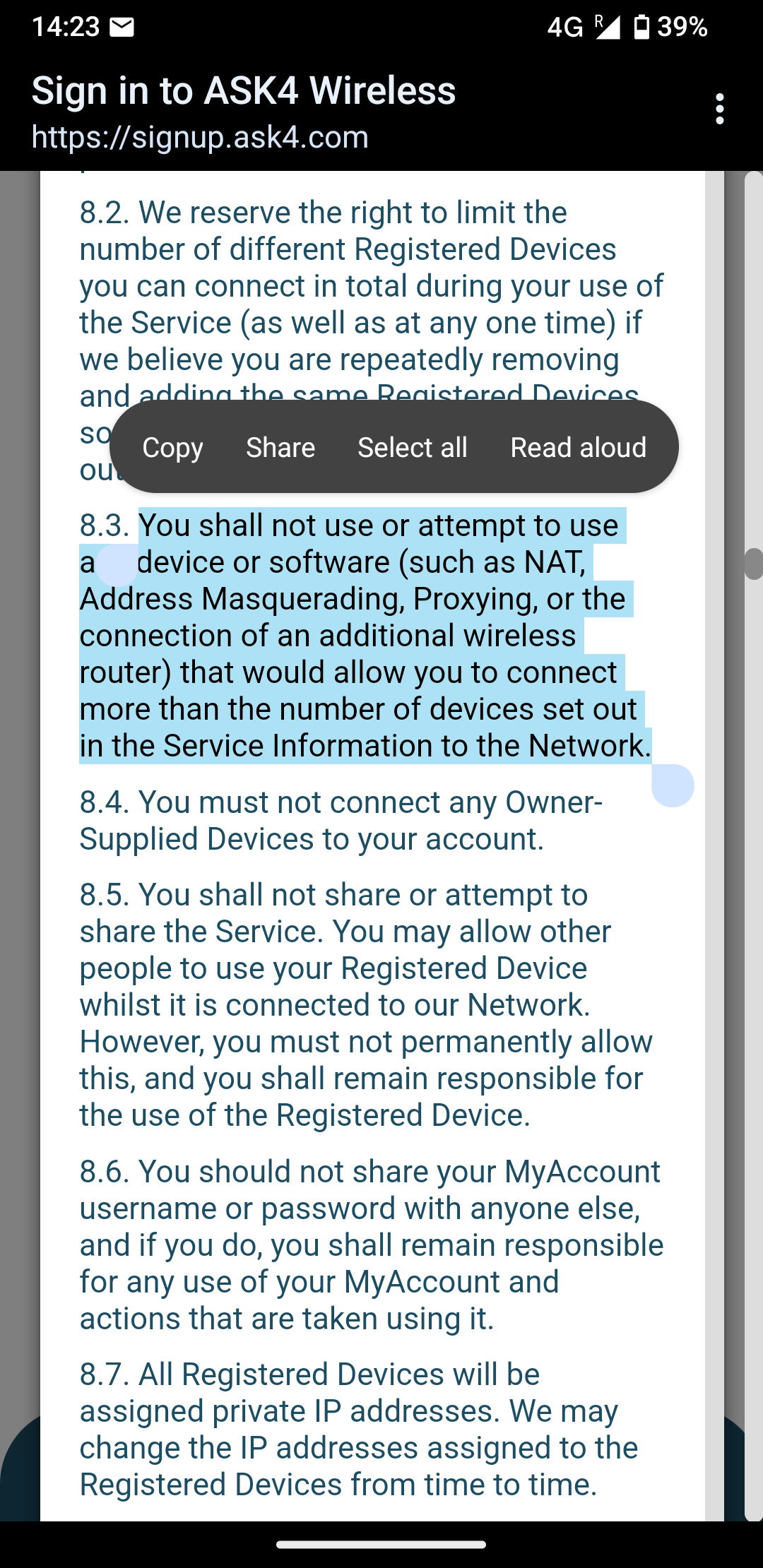this post was submitted on 07 Sep 2024
472 points (92.6% liked)
Technology
70041 readers
25 users here now
This is a most excellent place for technology news and articles.
Our Rules
- Follow the lemmy.world rules.
- Only tech related news or articles.
- Be excellent to each other!
- Mod approved content bots can post up to 10 articles per day.
- Threads asking for personal tech support may be deleted.
- Politics threads may be removed.
- No memes allowed as posts, OK to post as comments.
- Only approved bots from the list below, this includes using AI responses and summaries. To ask if your bot can be added please contact a mod.
- Check for duplicates before posting, duplicates may be removed
- Accounts 7 days and younger will have their posts automatically removed.
Approved Bots
founded 2 years ago
MODERATORS
you are viewing a single comment's thread
view the rest of the comments
view the rest of the comments

As someone whose job it is to deploy and manage wifi at a small university-adjacent student accommodation, these are similar to my rules. There are enough students that know enough to cause a problem, but not enough to know the pitfalls. It's best to just blanket cut this off for everyone's best experience.
Can you give some examples of issues you mention?
A few stories:
I've had a student install a super cheap (g only) repeater to provide wifi to their car in the car park, due to its location a number of students ended up using that rather than our APs. This slowed access for them dramatically.
I've had a student physically remove an AP to get to the 2.5 gigabit port they connect to, they somehow thought that would be better than the 1G they have in their rooms, despite it all being the same link out.
An overseas student cloned a MAC of their device to a travel router and effectively ran a VPN server for their family to try and give them an IP in our country.
The accommodation only has an hour of my time per week or so, they're not paying a lot so issues only get dealt with when I have the time for them, this leads to an extended period of bad access for folks and many complaints to the staff.
The main point of the story is that not all students take the experience of their neighbors into account. Hence the restrictions.
The difference here is that the ISP is up charging for multiple devices, meaning this isn't all being done for benevolent reasons.
The way many apartments work for non-students is each has its own WiFi. Honestly compared to how bad some Hall's WiFi is this is a better option, but it's not without problems. A lot of ISP routers either don't support or don't turn on by default DFS channels, 5.8GHz channels, 6 GHz band, or have WiFi 6 for BSS colouring. This means there will be loads of interference between adjacent WiFi networks.
It's really frustrating especially when you have ISPs like Virgin whose kit has DFS support, but despite touting smart wifi they just never enable it, and most people don't know to enable it either.
Yea that is true, there's definitely either a profit motive or they don't think they have the bandwidth for everyone to have multiple devices and are this introducing an up charge/scarcity to cover up that.
The site I look after we have a restriction on device numbers, 5 per room. Even that is flexible and not really enforced as in reality the network will be fine with thousands even. The main restrictions are about device behavior and preventing causing interference or outages.
There's only 120 rooms in the site I look after so it's not massive.
We're running W-Fi 6 with all channels enabled including DFS channels. We've great coverage (roughly one access point per 4 -6 rooms in a 90s building).
Not OP, but I'll add on some more complications.
Your network is designed with the minimum number of access points you need to have really good coverage. Adding more access points to the rooms increases interference and takes up usable frequencies. Rogue access points are hard to find and university IT has very limited resources.
That enterprise gear of the colleges using it's part of a bigger picture system with alerts and alarms and the ability to see an address problems and locate issues effectively.